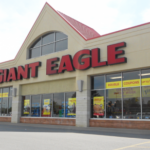dunnhumby has released a special edition of the dunnhumby Retailer Preference Index (RPI), this one “designed to determine which retailers in the $1 trillion U.S. grocery market personalize the shopping experience best for their customers.”
The winner is: Amazon.
H-E-B and Kroger came in second and third.
According to the report, “These three retailers are at the top of the rankings because they deliver targeted savings, a localized assortment, and a frictionless shopping experience best.
“The seven retailers with the next highest overall customer preference index scores are: 4) Giant Eagle, 5) King Soopers, 6) Meijer, 7) The Giant Company, 8) Target, 9) Fry’s, 10) Smith’s.”
Some key excerpts:
• “Amazon, Target, H-E-B, CVS, and Walgreens provide shoppers with the best Frictionless Experience, the third most important driver of personalization. A Frictionless Experience drives 27% of personalization-related outcomes. Amazon is peerless in Frictionless Experience ranking number one across all retailers in 10 out of the 11 frictionless experience levers. Target is the only retailer to beat Amazon in one lever – web and apps. Frictionless Experience Leaders perform roughly two times better than laggards at reminding shoppers (usual items, forgotten items, previously bought items, follow-ups), providing relevant products and topics, providing digital ease (making it easier to shop online or via the app), and personalizing both the online and in-store experience.”
• “Only Amazon, H-E-B, Target, and Shoprite who ranked in the top quartile in dunnhumby’s annual US Grocery RPI published in January 2023 were also ranked in the top quartile in the PRPI. Perennial top quartile performers Costco and Aldi as well as fast growing, hard discounters Dollar Stores, Lidl, and Grocery Outlet are absent from the top two quartiles of the report due to not relying on personalization to drive growth but instead relying on geographic expansion and cost-control measures to drive scale.”
• “Smith’s, Winn-Dixie, Kroger, Fry’s, and Giant Eagle offer shoppers the best Targeted Savings. Forty-five percent of personalization-related grocery retailer outcomes are driven by Targeted Savings. Leaders in this driver do two to three times better than laggards at rewarding shoppers, helping them save money (via the loyalty program), and making it easy for them to do so (an easy-to-understand program and point redemption).”
• “H-E-B, Big Y, Wegmans, Food City, and Schnucks offer the best Localized Assortment, the second most important driver of personalization. Localized Assortment drives 28% of personalization-related grocery retailer outcomes. Leaders in this space perform 1.5-2 times better than laggards at providing shoppers with the right variety of products to meet their needs, local product variety (from local farmers or businesses) and a close connection to the local community. Localization and hyper-localization can help customers feel like a grocery retailer knows them personally.”
KC’s View:
A couple of things here.
First, if Amazon didn’t rank at the top in terms of personalization, I would’ve been shocked – it has more data, and greater ability top act on its actionable data, than anyone else.
Second, I wanted to draw your attention to another passage from the study:
By accepting that customers define what “personalization means to themselves, not the grocer,” retailers have the opportunity to compete with Amazon and every-day-low-price (EDLP) retailers with customer data. For grocery retailers, it’s about serving the customer according to their stated and implicit preferences.
I’m not sure how many retailers actually have accepted this premise, but it indeed is the key to sustained, relevant and resonant relationships with shoppers.
We talk about this all the time here – a top priority for every retailers needs to be defining and implementing ways in which it can draw closer to the shopper. With the shopper’s “stated and implicit preferences.” With the fewest barriers, the least amount of friction.
That’s the foundation upon which retail success needs to be built, especially as consolidation creates behemoths that are more likely to have macro views of the world.
The post Study: Retail Personalization Winners (& Why) appeared first on MNB.
View Original Article


